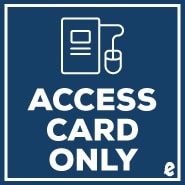
I. MAKING CONNECTIONS THROUGH COMMUNICATION
1. Connecting Process and Principles
Communication : Making Connections
What Is Communication?
Why Should We Study Communication?
Principles of Communication.
Essential Components of Communication
Types of Communication.
Misconceptions about Communication
Improving Communication Competence
2. Connecting Perceptions and Communication
Perception and Communication
Understanding Perception
The Nature of Perception
Perceptual Differences
Improving Perception Competencies and Perception Checking
3. Connecting Self and Communication
Understanding Self-Concept
Communication and Self-Concept
Self-Fulfilling Prophecy and Impression Management
Culture and Self-Concept
Gender and Self-Concept
Enhancing Self-Concept
4. Connecting Through Verbal Communication
The Importance of Language
The Elements of Language
Language-Based Barriers to Communication
How to Use Language Effectively
5. Connecting Through Nonverbal Communication
What Is Nonverbal Communication?
Characteristics of Nonverbal Communication
Functions of Nonverbal Communication
Types of Nonverbal Communication
Interpreting and Improving Nonverbal Communication
6. Connecting Listening and Thinking in the Communication Process
The Importance of Effective Listening
Listening and Hearing: Is There a Difference?
The Stages of Effective Listening
The Functions of Listening
Barriers to Effective Listening
Critical Listening and Critical Thinking: Analyzing and Evaluating Messages
Improving Listening Competence
Listening and Technology
Intercultural Listening
II. CONNECTING IN THE PUBLIC CONTEXT
7. Selecting a Topic and Relating to the Audience
Selecting a Speech Topic
Determining the General Purpose, Specific Purpose, and Thesis of a Speech
Connecting With the Listeners
8. Gathering and Using Information
Gathering Information
Suggestions for Doing Research
Using Research to Support and Clarify Ideas
9. Organizing and Outlining Your Speech
Organize the Body of Your Speech
Organize the Introduction of Your Speech
Organize the Conclusion of Your Speech
Outline Your Speech
10. Managing Anxiety and Delivering Your Speech
Qualities of Effective Speakers
Managing Speech Anxiety
Methods of Delivery
Vocal and Physical Aspects of Delivery
Presentational Aids
Your Delivery
11. Informative Speaking
Information and Power
Distinctions between Informative and Persuasive Speaking
Topics for Informative Speeches
Preparing and Developing an Informative Speech
Evaluating the Informative Speech
A Sample Informative Speech with Commentary
12. Persuasive Speaking
The Goal of Persuasive Speaking
Topics for Persuasive Speeches
Persuasive Claims
Establishing Credibility
Becoming Effective Consumers of Persuasion
Preparing and Developing a Persuasive Speech
Fallacies in Argument Development
Evaluating the Persuasive Speech
A Sample Persuasive Speech with Commentary
III. CONNECTING IN RELATIONAL CONTEXTS
13. Interpersonal Communication
Connecting with Others via Interpersonal Communication
Motivation and Need to Form Relationships
Relationships: Getting to Know Others and Ourselves
Connecting With Others Online
Self-Disclosure in Relationships
14. Developing Relationships
Forming and Dissolving Relationships
Interpersonal Conflict
Improving Communication Competence in Relationships
15. Group and Team Communication
Small Group Communication: Making the Connection
What Is a Group?
Group Formation: Why We Join Groups and Why We Leave
Types and Purposes of Small Groups
Project or Work Teams
Characteristics of Small Groups
Gender Differences in Group Communication
Ethical Behavior in Group Communication
Virtual Groups and Teams
Disadvantages of Small Groups
16. Participating in Groups and Teams
Team Building
Leadership
Conducting a Meeting
Member Participation
Problem Solving and Decision Making
Managing Group Conflict
Evaluating Small Group Performance
Appendix: Employment Interviewing: Preparing for Your Future
Preparing for Your Career
Career Research on the Internet
Choosing a Career
Qualities Employers Seek
Preparation for an Interview
The Interview
Factors Leading to Rejection
Factors Leading to Job Offers
The New copy of this book will include any supplemental materials advertised. Please check the title of the book to determine if it should include any access cards, study guides, lab manuals, CDs, etc.
The Used, Rental and eBook copies of this book are not guaranteed to include any supplemental materials. Typically, only the book itself is included. This is true even if the title states it includes any access cards, study guides, lab manuals, CDs, etc.